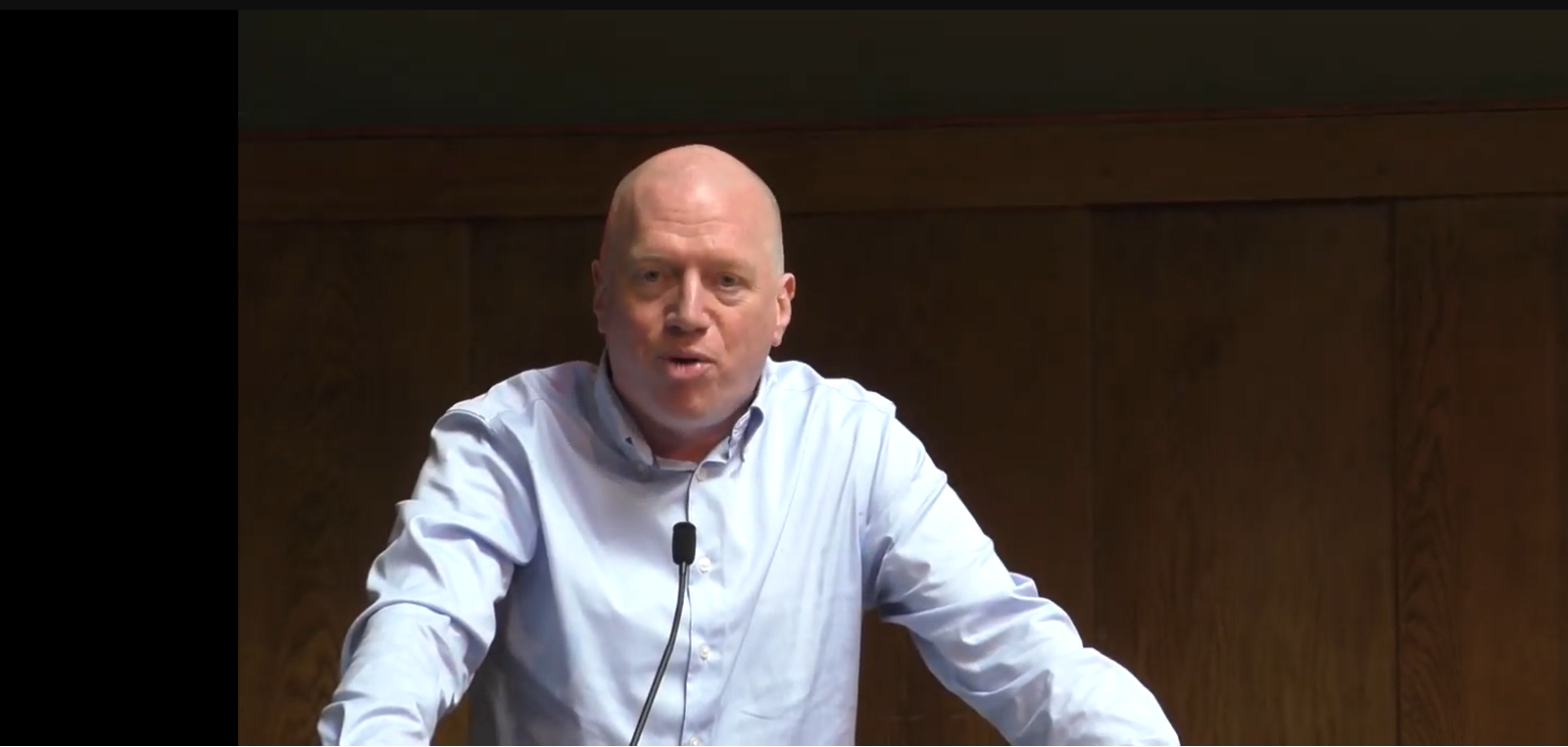THIS BLOG believes strongly that internal union debates should never be personalised – that is to say that members should never resort to personal abuse or vilification in their arguments with fellow members or officials of the union.
However, that doesn’t mean that we shouldn’t be free to examine the personal records of our elected representatives, or to highlight examples where promises made by those representatives – especially those in the most senior positions – have not been delivered. This kind of analysis is entirely legitimate – indeed, it is central to the process of holding representatives to account in any democratic organisation. It is why, for example, the Fire Brigades Union’s general secretary, Matt Wrack, has publicly condemned Sir Keir Starmer for breaking a number of the promises he made when standing for the Labour leadership.
It is in the above context that we today publish a document containing a list of key statements and pledges made by Wrack himself when he was running for the leadership of the FBU and compare those statements and pledges to what he subsequently did after he was elected.
The document was drafted by Wrack in 2005 when he was vying to displace Andy Gilchrist as the union’s general secretary. It was then circulated to his supporters, who were encouraged to use it as a basis for arguing why members should vote for him over Gilchrist.
At the heart of Wrack’s programme was a commitment to spread democracy, accountability and transparency throughout the union and to put members in control of decision-making and finances. Wrack won the election, and many of those who voted for him will have done so on the basis of the promises he made at the time.
But several years later, what does the balance sheet look like? Did Wrack spread democracy, accountability and transparency in the way he promised? Did he put members in control of decision-making and finances?
On the contrary, what is apparent from reading the election document is the spectacular degree to which the statements and pledges made by Wrack conflict with what he has done since taking office. Not only has he abandoned a number of key principles; he has, in some cases, done the very opposite of what he promised to do.
Below, we list some of the most striking examples.
MW statement/pledge: “For rank-and-file control over FBU expenditure. Open the books.”
The reality: The Matt Wrack leadership fought desperately to prevent a member from exercising his legal right to inspect a number of accounting records held by the union, including those containing details of the personal spending activities of senior officials. The leadership told the member his request would be denied unless he was prepared to sign a secrecy agreement prohibiting him from sharing any details. The leadership argued that these officials had a “right to privacy” on such matters. They even threatened the member who made the request with a court injunction and internal union discipline. In the end, the trade union watchdog ruled that the leadership had acted unlawfully and ordered them to open up the books.
A body called the finance and administration committee (“Fac”), comprised of a small group of senior FBU officials, including the general secretary, regularly makes key decisions on how members’ money is spent. The work of that committee is shrouded in secrecy. No reports or minutes of its meetings are ever circulated to members or local committees. Most members are probably unaware that it even exists. The committee effectively operates as a substitute executive council (EC) on major questions of spending.

MW statement/pledge: “For openness and transparency. End the secrecy on the EC.”
The reality: Official FBU policy, as agreed by the union’s annual conference, calls for the minutes of executive council meetings to be published and circulated within 14 days of being ratified at the subsequent meeting. For years, this policy was routinely ignored by the Wrack leadership. Then, in August 2020, Wrack sent a circular to all regional secretaries ordering them to keep all copies of EC minutes under lock and key inside regional offices. He stated that the minutes must not be forwarded either electronically or by hard copy, and any request by a member to read them must be raised directly with that region’s executive council member.
Leaked minutes of an EC meeting on 20 March 2020 further reveal that Wrack insisted that any member wishing to inspect copies of the minutes at a regional office may do so only “under the supervision” of the regional secretary or executive council member.
Many members live a considerable distance from their regional office. Sometimes a round trip will amount to hundreds of miles. The diktat from the Wrack leadership therefore acts (as it was almost certainly intended to do) as a substantial barrier to members wishing to scrutinise the actions and decisions of the EC.
All of this means that minutes of EC meetings have effectively become classified documents, viewable only by a handful of the most privileged officials or determined activists. It also means that even brigade and regional committees of the union are prohibited from having the EC minutes circulated at their meetings so that the decisions and activities of EC members can be scrutinised and debated by local officials.
MW statement/pledge: “Let the members know, in full, what salaries, allowances and other perks are paid to national officials.”
The reality: In recent years, at least two elected national officers left the union with substantial pay-offs after complaining of mistreatment. Both were required to sign non-disclosure agreements (NDAs). In neither case were full and proper details provided to the executive council (let alone the wider membership). These were just two of several cases where employees of the union departed with confidential pay-offs and NDAs. In all of these cases, full details were withheld from the executive council. The “hush money” scandal, as it has become known, has even reached the pages of Private Eye magazine.

MW statement/pledge: “Argued for democratic control [of the 2002-03 pay dispute] – decision-making in hands of conference / national strike committee … Constantly and publicly called for a recall of the union conference during stage 2 [of the negotiations] … Opposed decisions being taken by EC which should have gone to conference.”
The reality: In the 2022-23 national pay dispute, which lasted for almost a year, every major tactical decision was taken behind closed doors by the executive council. The union’s annual conference – its parliament – was not recalled at any point during the dispute. Local officials were effectively shut out of the decision-making process throughout the entirety of the dispute.
MW statement/pledge: “Put conference back in its proper place … Conference should be the decision-making body, not the EC.”
The reality: See above. Also, under the Wrack leadership, annual conference has become little more than a sideshow. An inspection of the “Record of Decisions” booklets published after each conference shows how a large number of resolutions passed by delegates are either kicked into the long grass or simply not actioned at all. In some cases, the leadership does the opposite of what it is instructed to do by conference.
There also appears to have been an increase over recent years in the number of debates at conference that are held in “closed session” – meaning that the debate is held privately and no report is circulated to members.
For a period under Wrack’s leadership, annual conference even became a biannual conference.
MW statement/pledge: “National officers should be controlled by the EC and annual conference.”
The reality: National officers still work under the direction of the general secretary. Wrack even engineered a shift to a system which saw some national officers appointed by a handful of senior officials rather than elected by the entire membership. He later opposed a successful move by annual conference to reverse this.
MW statement/pledge: “No more witch-hunts. To genuinely encourage debate and free-thinking across the Fire Brigades Union.”
The reality: There is less tolerance of open dissent inside the FBU than existed before Wrack came to power. Several officials have complained of a culture of conformity at the top of the union. In 2021, a former member of the executive council was found by an employment tribunal to have been unfairly dismissed following a “witch-hunt” conducted in response to a complaint from Wrack. (The unfair dismissal finding was later overturned on a technical question over the individual’s employment status, but the “witch-hunt” finding was not contradicted.)
MW statement/pledge: “No more cancelling elections. Hold all outstanding elections ASAP.”
The reality: Under the rules of the union, an election for a vacant national officer position should have been held by the end of 2021. It is currently 18 months overdue. The Wrack leadership has failed to run the election even though it has been instructed to do so by annual conference. No explanation for this failure has been provided to members.
MW statement/pledge: “Reduce the centralisation of the FBU … Shift balance of power to local officials and their members.”
The reality: The FBU is arguably more centralised and authoritarian than at any point in its modern history. Annual conference has been undermined; the decisions and activities of the EC are placed beyond the scrutiny of most members; dissent is frowned upon; the accounts are cloaked in secrecy; even the rule book is openly breached by the leadership from time to time.
So there’s the balance sheet of the Wrack leadership. A string of abandoned pledges. The key promise to spread democracy, accountability and transparency throughout the union systemically broken time and again. If anything, all of these things have been seriously eroded on Matt Wrack’s watch.
Members of our union are entitled to judge their officials’ actions against the commitments they gave when they came to power. That is a crucial part of the democratic process. And when those officials fail to deliver on what they promised, they must expect to be held to account for it.

